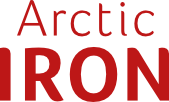The importance of iron
Iron is a vital and necessary trace element whose main task is to transport oxygen to all the cells of the body. Iron is also important for other processes in the body, for example, in the formation of genetic material and in many enzyme reactions.
The amount of iron stored in the body must not become too low. If iron levels become too low, a person can develop fatigue, listlessness and difficulty concentrating.
We must get iron from our diet because the body is not able to produce it on its own. The majority of the body's iron is found in the haemoglobin in red blood cells. Haemoglobin plays an important role in the body. Iron is critical for this oxygen transportation system.
The body needs iron to form new blood cells. A lack of iron reduces the haemoglobin value, which can also be due to an imbalanced diet or problems with iron absorption. Iron is also important for cell respiration. Several different enzymes take part in cell respiration and they need iron to function. This is particularly true for young people, fertile women and elderly persons. Stress and strong physical exertion take their toll on the body’s iron reserves. Vegetarians/vegans and people watching their weight often have diets that are low in iron and need extra nutrition.
Vitamin C
Vitamin-C is necessary for the formation of collagen, the body's most important structural protein.
Folic acid
The average consumption rate for folic acid is considerably lower than the recommended amount



